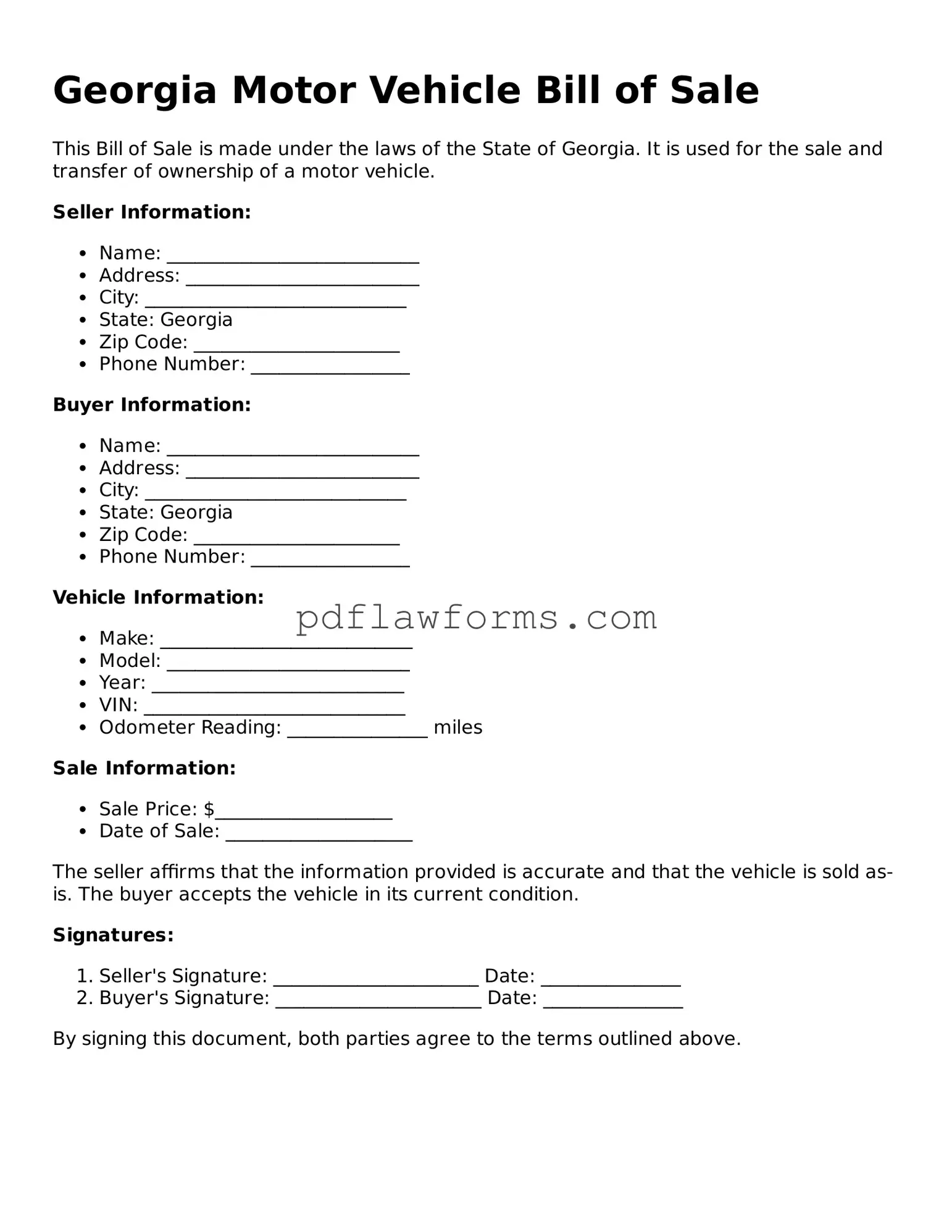Motor Vehicle Bill of Sale Form for the State of Georgia
The Georgia Motor Vehicle Bill of Sale form is a crucial document that serves as proof of the transfer of ownership for a vehicle in the state of Georgia. This form outlines essential details such as the buyer's and seller's information, vehicle specifications, and the sale price, ensuring a smooth transaction. If you're ready to complete your vehicle sale, fill out the form by clicking the button below.
Make My Document Online

Motor Vehicle Bill of Sale Form for the State of Georgia
Make My Document Online
You’re halfway through — finish the form
Edit and complete Motor Vehicle Bill of Sale online, then download your file.
Make My Document Online
or
⇩ Motor Vehicle Bill of Sale PDF
